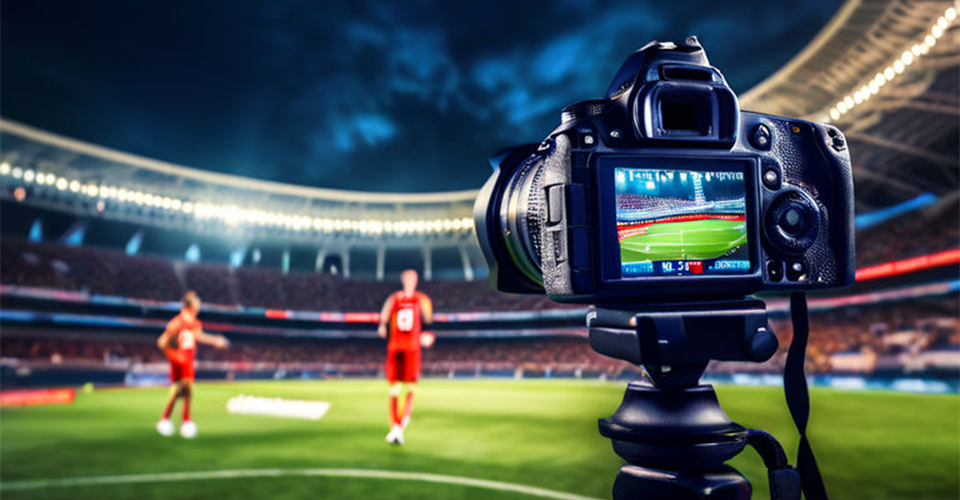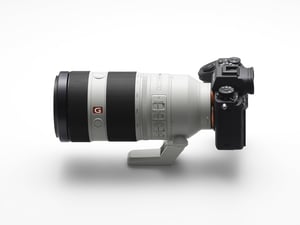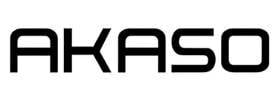
Best Lens for Sports Photography Leave a comment
Sports photography is an exciting area of work as it involves action, speed and photography in a way that even the human eye cannot detect the action. Essentially the only way to thrive in this unforgiving environment is to have the proper tools, or as they call it in photography, proper lens. It has to feature a fast descriptor, good light sensitivity and resolution for they would capture not only an ordinary shot, but an incredible one at that, especially when dealing with moving objects and surfaces, indoors and out on great fields. This guide provides detailed information on the kind of lenses used in sports photography and recommendations for Canon, Nikon and Sony cameras. Whether you are photographing indoor gymnastics or outdoor football this article will assist you in identifying the best lens for sports photography.
Choosing of the right lens for sports photography
One needs to be in a position to determine which lens is more appropriate to use in sports photography. With the right lens, taking stunning dynamic pictures that are sharp and well focused is not a big deal. Key characteristics to consider include:
- Autofocus: Among them, the special importance is placed on the ability of focusing on an object as quickly as possible to capture fast-moving objects without blurring.
- Focal Length: Greater or extended focal lengths enable you to take close-ups from a distance, normally while on the field of play, say; 200mm or even higher.
- Aperture: A wide aperture (f/2.8 or wider) assist at low light and when freezing action with a faster shutter speed.
- Image Stabilization: Aids in counteracting camera movement when shooting at long focal lengths and during low light conditions or when holding the camera by hand.
These are the basics of any good sports photo lens so you’re not fiddling with settings and focusing ranges while missing the action. If you are looking for the best Canon lens for sports photography you can choose the EF 300mm f/2.8L IS II USM.
Best Canon Lens for Sports Photography
When it comes to Canon equipment, there are several top contenders for the title of the best Canon lens for sports photography, like It’s powered by the Canon EF 70-200mm f/2.8L IS III USM lens. It is highly valued by professionals due to itssimplicity of construction and high image quality coupled with its flexibility. In all, it is suitable for virtually any sporting occasion, as far as coverage and aperture are concerned. The f/2.8 aperture is alight that makes it produce good results in different lighting, perfect for indoor and outdoor sports.
Best Nikon Lens For Sports Photography
Choosing the best Nikon lens for sports photography can significantly enhance your ability to capture fast-paced action with precision and clarity. When searching for the best Nikon lens for sports photography, it’s crucial to consider lenses that offer quick autofocus, robust image stabilization, and a versatile focal range to cover various sports events, from track meets to football games. Many professional photographers recommend the Nikon 70-200mm f/2.8E FL ED VR as the best Nikon lens for sports photography because of its exceptional sharpness, fast aperture, and reliable performance under diverse lighting conditions.
Best Budget Lens for Sports Photography Canon
Canon EF 70–300mm f/4-5.6 IS II USM
For the beginners and those, who have limited financial capabilities, it is worth to look at Canon EF 70-300mm f/4-5.6 IS II USM which is a best budget lens for sports photography Canon. This one has a great zoom range and more than acceptable low light capabilities for the price point, so I’d recommend this for the budding sports photographer or first timer.
| Key Specs | |
|---|---|
| Focal Length | 70 to 300mm |
| Maximum Aperture | f/4 to 5.6 |
| Lens Mount | Canon EF |
| Lens Format Coverage | Full-Frame |
| Focus Type | Autofocus |
| Image Stabilization | Yes |
| Filter Size | 67 mm (Front) |
| Minimum Aperture | f/32 to 45 |
| Angle of View | 34° to 8° 15' |
| Minimum Focus Distance | 3.94' / 1.2 m |
| Maximum Magnification | 0.25x |
| Optical Design | 17 Elements in 12 Groups |
| Diaphragm Blades | 9, Rounded |
| Dimensions (ø x L) | 3.15 x 5.73" / 80.01 x 145.54 mm |
| Length at Maximum Extension | 8.46" / 215 mm |
| Weight | 1.56 lb / 710 g |
Best Sony Lens For Sports Photography
When selecting the best Sony lens for sports photography, it’s crucial to consider lenses that offer fast autofocus capabilities and vibrant image quality. The Sony FE 70-200mm f/2.8 GM OSS is often hailed as the best Sony lens for sports photography due to its exceptional sharpness and reliable performance in fast-paced environments. For photographers who demand uncompromising quality and speed, this lens is a standout choice and solidifies its position as the best Sony lens for sports photography, especially when capturing high-action moments where precision is paramount.
Best Nikon Lens for Sports Shooter
Nikon users also have a range of options tailored to the demands of sports photography. Nikon AF-S NIKKOR 70-200mm f/2.8E FL ED VR The AF-S NIKKOR 70-200mm f/2.8E FL ED VR is among the best lenses to develop with because of the unprecedented effective tuneable focus mechanism and clear stabilization. This is Nikon’s top sports lens which provides excellent sharpness, fast focusing and highly effective VR. It is suitable for recording all from track event occasions to night football matches.
Best Budget Lens for Sports Photography Nikon
Nikon AF-P DX NIKKOR 70-300mm f/4.5-6.3G ED VR Lens
For those who are energetic Nikon photographers the Nikon AF-P DX NIKKOR 70-300mm f/4.5-6.3G ED VR is a great low cost choice. Its compact size and impressive distribution of vibrations allow to conveniently use it over long periods of shooting in the wide field of best budget lens for sports photography Nikon. Sony has rapidly built a reputation for high-performance lenses suitable for sports photography:
| Key Specs | |
|---|---|
| Focal Length | 18 to 300mm (35mm Equivalent: 27 to 450mm) |
| Maximum Aperture | f/3.5 to 6.3 |
| Lens Mount | Nikon F |
| Lens Format Coverage | APS-C |
| Focus Type | Autofocus |
| Image Stabilization | Yes |
| Filter Size | 67 mm (Front) |
| Minimum Aperture | f/22 |
| Angle of View | 76° to 5° 20' |
| Minimum Focus Distance | 1.57' / 48 cm |
| Maximum Magnification | 0.32x |
| Optical Design | 16 Elements in 12 Groups |
| Diaphragm Blades | 7, Rounded |
| Dimensions (ø x L) | 3.09 x 3.9" / 78.5 x 99 mm |
| Length at Maximum Extension | 7.02" / 178.2 mm |
| Weight | 1.21 lb / 550 g |
Sony FE 70-200mm f/2.8 GM OSS
As for the Sony photographers who are seeking for the best lens for sports photography – the Sony FE 70-200mm f/2.8 GM OSS is the best choice. Sharpness, as well as the ability to autofocus in a few seconds, as well as its conceptual design, allows the Metal to be used in professional video production work.
| Key Specs | |
|---|---|
| Focal Length | 70 to 200mm |
| Maximum Aperture | f/2.8 |
| Lens Mount | Sony E |
| Lens Format Coverage | Full-Frame |
| Focus Type | Autofocus |
| Image Stabilization | Yes |
| Filter Size | 77 mm (Front) |
| Minimum Aperture | f/22 |
| Angle of View | 34° to 12° 30 |
| Minimum Focus Distance | 15.7" / 40 cm |
| Optical Design | 17 Elements in 14 Groups |
| Diaphragm Blades | 11, Rounded |
| Tripod Collar | Removable and Rotating |
| Dimensions (ø x L) | 3.46 x 7.87" / 88 x 200 mm |
| Weight | 2.3 lb / 1045 g |
Best Lens for Sports Photography Sony
Sony FE 100-400mm f/4.5-5.6 GM OSS
Another fantastic lens that most recommends for sports photography from Sony is the Sony FE 100-400mm f/4.5-5.6 GM OSS. In this lens, we find a very high level of zoom accompanied by a very high image resolution that is ideal for catching action away from the scene. It enables a close subject to be shot with ease by adjusting the zoom even if the object of interest is performers on the field during a football match or baseball players. The lens incorporates using the latest optical technology to reduce distortion and increase clarity so that every shot is true to size and focus at longer focal planes.
| Key Specs | |
|---|---|
| Focal Length | 100 to 400mm |
| Maximum Aperture | f/4.5 to 5.6 |
| Lens Mount | Sony E |
| Lens Format Coverage | Full-Frame |
| Focus Type | Autofocus |
| Image Stabilization | Yes |
| Filter Size | 77 mm (Front) |
| Minimum Aperture | f/32 to 40 |
| Angle of View | 24° to 6° 10 |
| Minimum Focus Distance | 3.2' / 98 cm |
| Maximum Magnification | 0.35x |
| Optical Design | 22 Elements in 16 Groups |
| Diaphragm Blades | 9, Rounded |
| Tripod Collar | Removable and Rotating |
| Dimensions (ø x L) | 3.7 x 8.07" / 93.9 x 205 mm |
| Length at Maximum Extension | 11.2" / 284 mm |
| Weight | 3.1 lb / 1395 g |
Canon EF 85mm f/1.8 USM
This lens is often highly recommended for photographers covering indoor sports events due to its outstanding performance in challenging lighting conditions. Its impressive f/1.8 aperture significantly enhances the ability to freeze motion, which is crucial for capturing fast-paced action in environments that frequently have limited lighting, such as gyms and arenas. With this wide aperture, photographers can achieve faster shutter speeds, allowing for crisp and clear images even when athletes are in motion.
| Key Specs | |
|---|---|
| Focal Length | 85mm |
| Maximum Aperture | f/1.8 |
| Lens Mount | Canon EF |
| Lens Format Coverage | Full-Frame |
| Focus Type | Autofocus |
| Image Stabilization | No |
| Filter Size | 58 mm (Front) |
| Minimum Aperture | f/22 |
| Angle of View | 28° 30' |
| Minimum Focus Distance | 2.79' / 85 cm |
| Maximum Magnification | 0.13x |
| Optical Design | 9 Elements in 7 Groups |
| Diaphragm Blades | 8, Rounded |
| Dimensions (ø x L) | 2.95 x 2.81" / 74.93 x 71.37 mm |
| Weight | 14.99 oz / 425 g |
Sigma 50 100mm f 1.8 DC HSM Art
If you are shooting with a Nikon or Canon APS-C cameras, you might be asking yourself what you’re looking at – currently one of the most powerful DFOV and f-stop combinations out there. These two combinations are critically useful when taking indoor sports activity photographs, Given the fact that these areas are usually small and the lighting conditions are hard. Still, the option to get as wide an aperture as possible to gather more light becomes crucial for freezing the action and keeping objects in view sharp.
| Key Specs | |
|---|---|
| Focal Length | 50 to 100mm (35mm Equivalent: 80 to 160mm) |
| Maximum Aperture | f/1.8 |
| Lens Mount | Canon EF |
| Lens Format Coverage | APS-C |
| Focus Type | Autofocus |
| Image Stabilization | No |
| Filter Size | 82 mm (Front) |
| Minimum Aperture | f/16 |
| Angle of View | 31.7° to 16.2° |
| Minimum Focus Distance | 3.12' / 95 cm |
| Maximum Magnification | 0.15x |
| Optical Design | 21 Elements in 15 Groups |
| Diaphragm Blades | 9, Rounded |
| Tripod Collar | Fixed and Rotating |
| Dimensions (ø x L) | 3.68 x 6.72" / 93.5 x 170.7 mm |
| Length at Maximum Extension | 6.72" / 170.6 mm |
| Weight | 3.28 lb / 1490 g |
Best Lens For Indoor Sports Photography
When selecting the best lens for indoor sports photography, it’s crucial to consider lenses that perform well in low-light conditions. Typically, the best lens for indoor photography will have a wide aperture to allow more light to reach the sensor, enhancing your ability to capture fast-moving action without blur. For photographers looking to invest in equipment specifically tailored to indoor settings, a lens like the 70-200mm f/2.8 proves to be the best lens for indoor sports photography because it combines versatility in zoom range with a large aperture, making it ideal for poorly lit indoor arenas.
Furthering Research for each Brand Under a Tight Budget
It’s important to reiterate the best budget lens for sports photography options for each brand, ensuring photographers can make informed decisions based on their financial constraints:
- Canon: One of the best value lenses on this list is the Canon EF 70-300mm f/4-5.6 IS II USM.
- Nikon: One of the marvelous features of Nikon AF-P DX NIKKOR 70-300mm f/4.5-6.3G ED VR is tand of lens amazing price/quality ratio.
- Sony: The Sony E 55-210mm f/4.5-6.3 OSS: Sony users can immerse themselves in sports photography at an entry-level price.
How to Choose The Right Lens for Yours Sports Photography Needs
Selecting the best lens for sports photography involves considering several factors:
- Type of Sport: Some sports are going to demand varying focal lengths. For example, events such as athletics, more so track and field might require a longer throw than basketball requires.
- Location: Whether you play indoor or outdoor the aperture and stabilization will vary through the game.
- Mobility: Think of how much travelling you will be, as a photographer. It could be that a heavier measure could produce more accurate shots but this is not practical if one has to be on the move most of the time.





















































